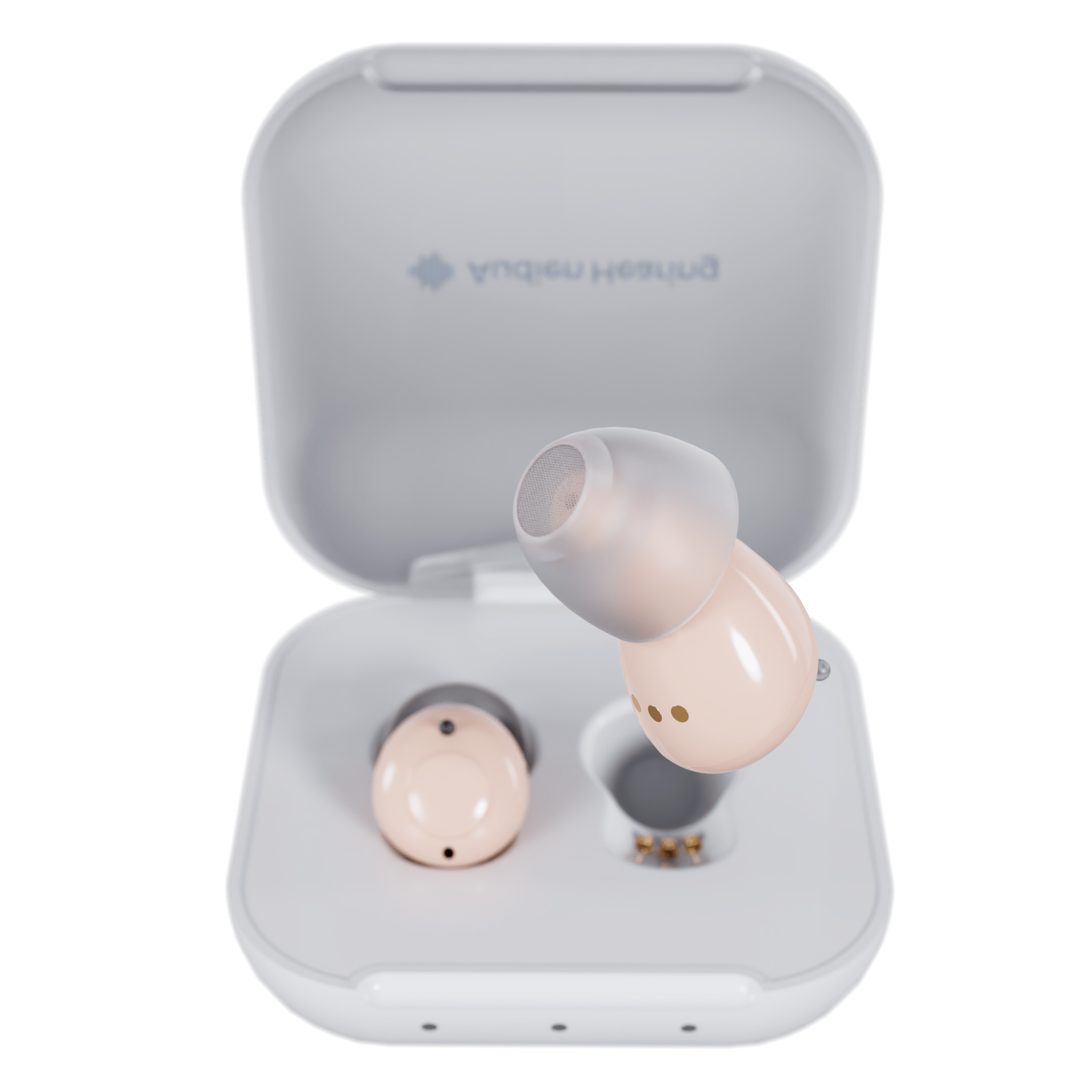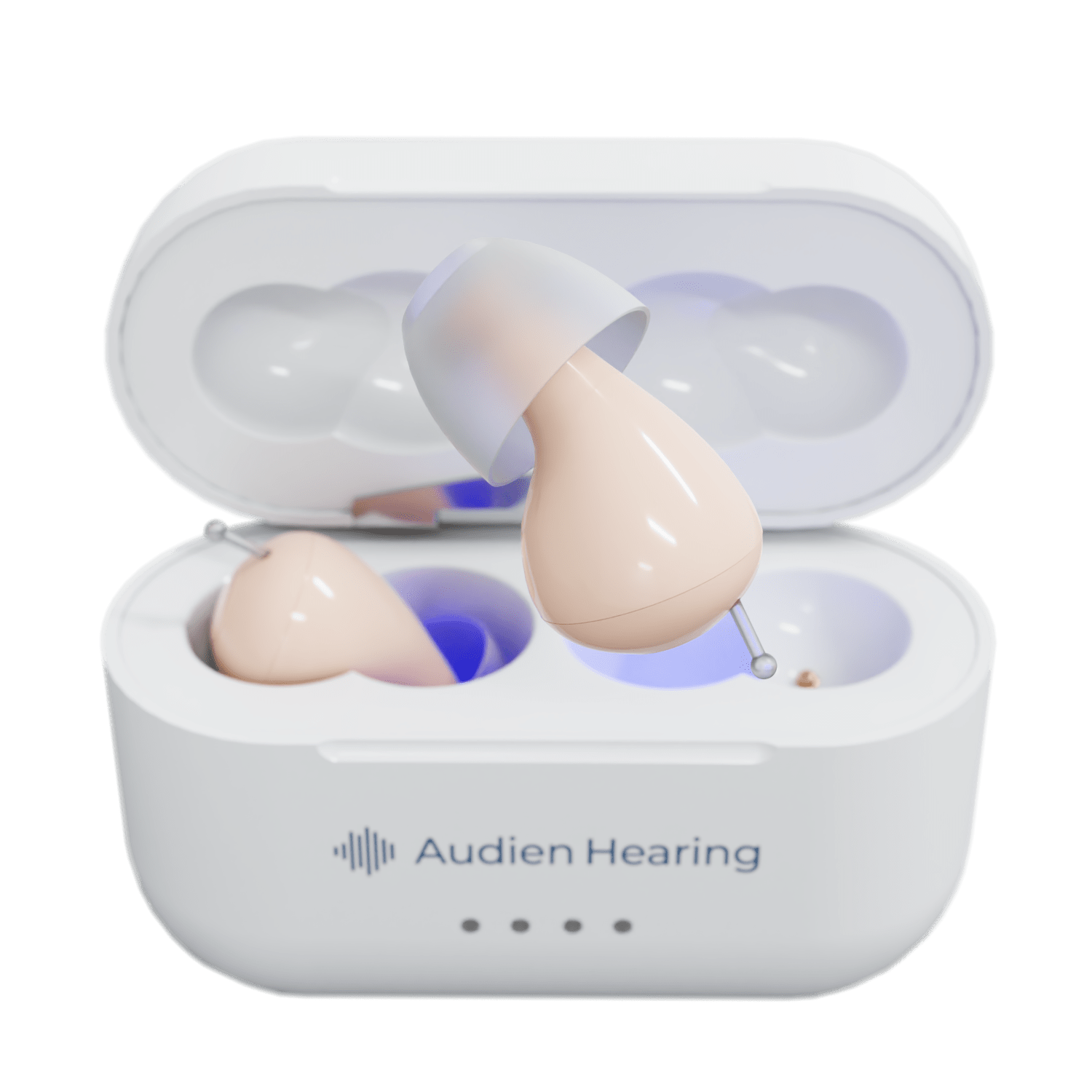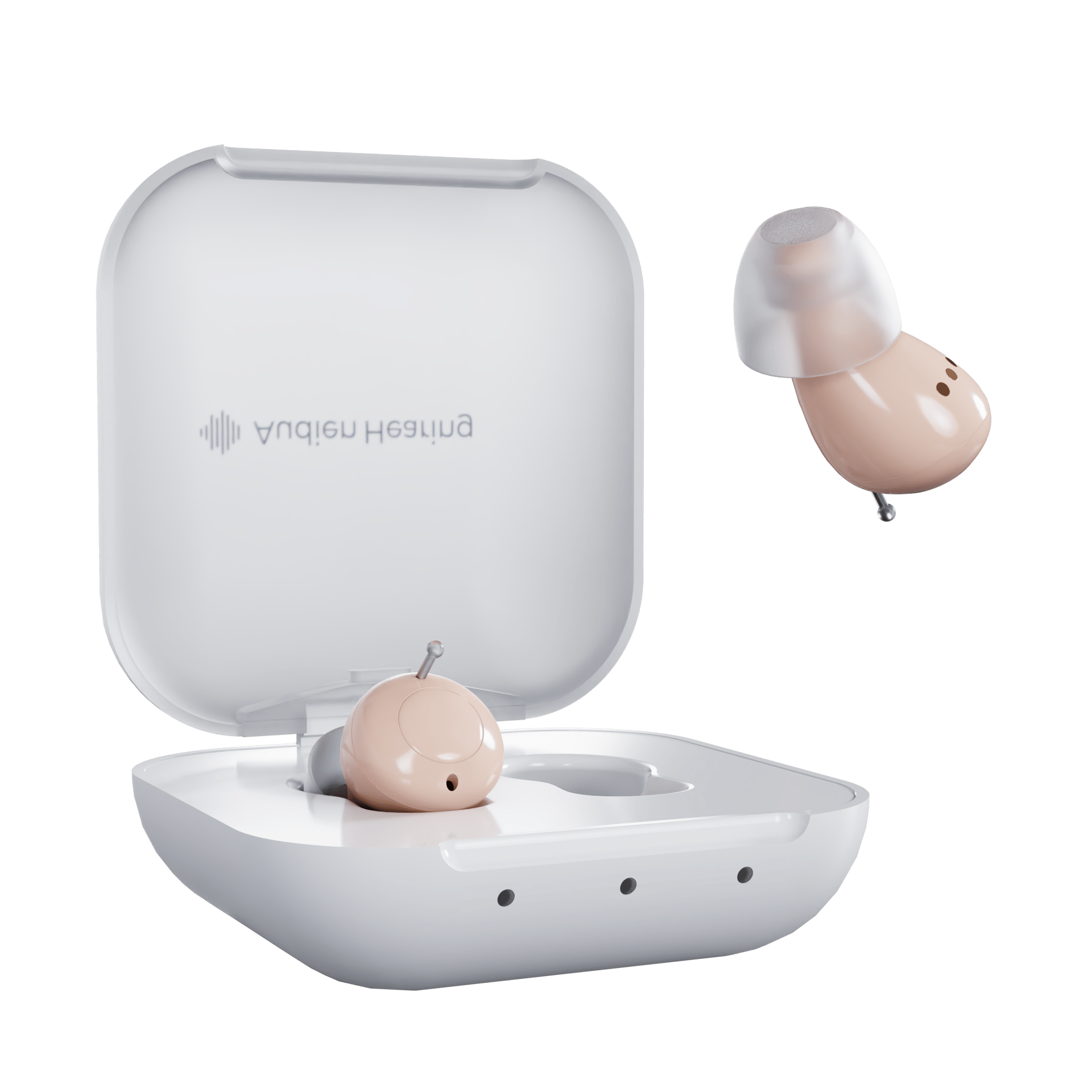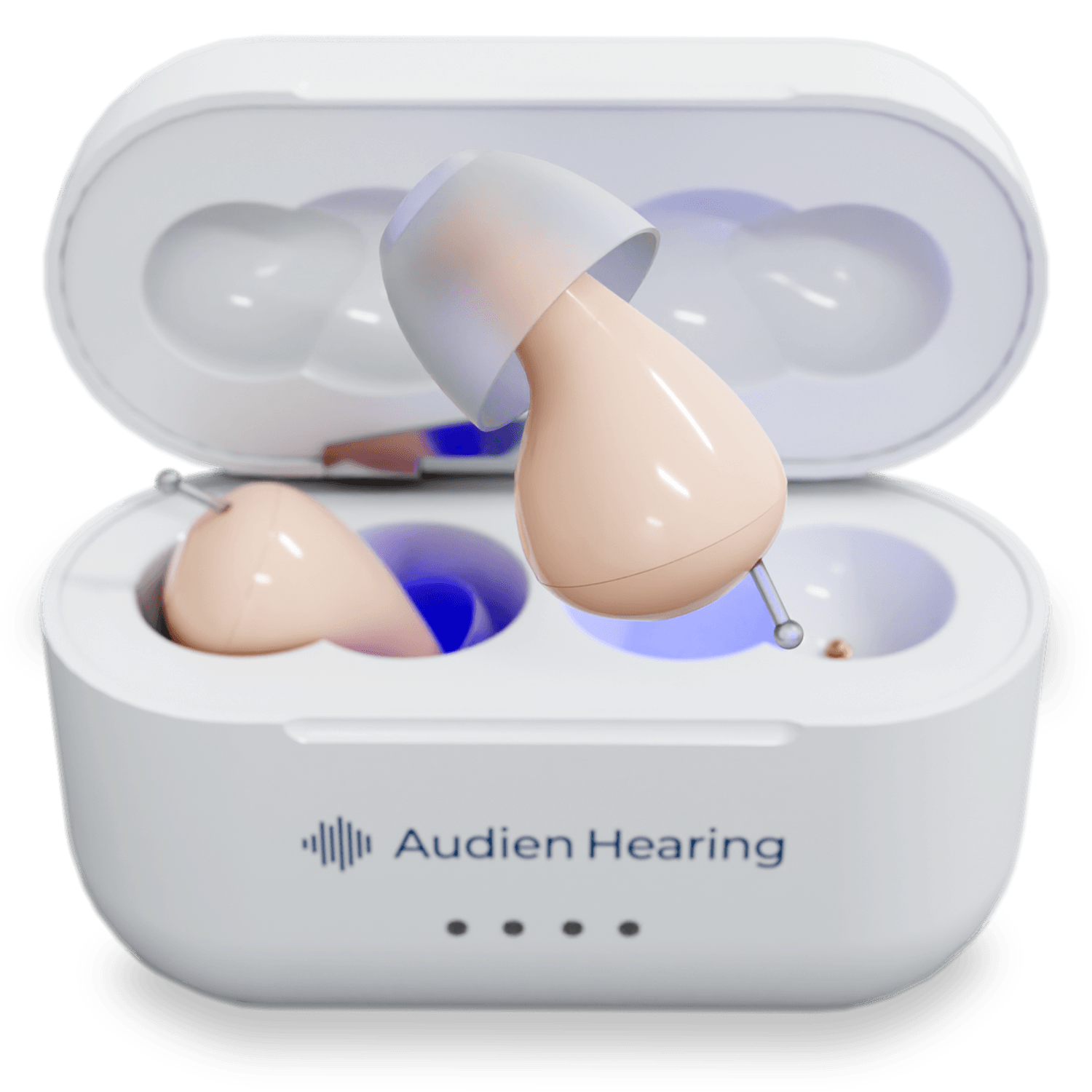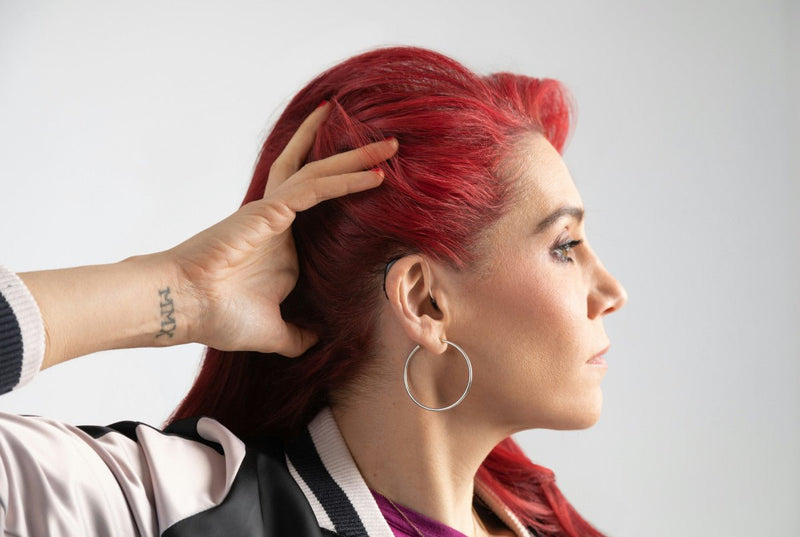The first decision for anyone navigating hearing loss is often where to turn for help. The obvious initial step is connecting with a licensed audiologist near you.
Costco employs a mix of licensed audiologists and hearing aid dispensers, depending on location. All hearing aids dispensed at Costco are prescription-grade, though some of the brands they carry (like Jabra) also sell OTC versions online. Sounds more convenient and affordable. There’s more nuance to this Costco hearing aids vs audiologist comparison that you may realize, though.
Although both offer professional support, the care models differ slightly - and the differences matter. That’s why we put together this guide, looking at the hearing aids Costco vs Audiologist offers.
Costco provides access to prescription hearing aids, fitted and adjusted by either licensed audiologists or licensed hearing aid dispensers depending on the center. Traditional audiology clinics, on the other hand, deliver medical-grade care with ongoing diagnostic oversight.
Learn about the trade-offs in convenience, cost, and customization below. We’ll also explain how not every case of hearing loss necessitates this level of care. Those struggling with mild to moderate hearing loss could be a good candidate for one of our affordable hearing aids.
Audien Hearing offers FDA-registered OTC devices for adults with mild to moderate hearing loss, with affordable models supported by customer service and a risk-free trial. Audien Hearing provides the best OTC hearing aids at an unbeatable price, backed by exceptional support every step of the way. We have a model for everyone, be it the best hearing aid under $100, best hearing aids under $200, or anything in between.
“9 yrs ago I bought the expensive doctor visit aids and was very disappointed, I still couldn’t understand words, often never connected to my phone, a lot of static, so I wasn’t expecting much from the Audien aids, but I was very surprised, they are actually better than the more expensive aids!” - Chad
“I chose Audien Hearing for my OTC hearing aids as they were always listed in the top 10 companies in their field when I researched all my options. I am very satisfied with Audien and would recommend them to anyone looking for a cost effective solution for hearing issues.” - CB
“Best customer service. I have only had a few days and am still getting used to them. Every question I had has been answered quickly by customer service.” - Valerie
Fast Facts on Costco Hearing Aids vs Audiologist Hearing Aids
| Feature | Costco Hearing Aids | Audiologist-Prescribed Hearing Aids |
|---|---|---|
| Who You Work With | Hearing aid dispenser or audiologist (varies by location) | Doctoral-level audiologist with full diagnostic training |
| Evaluation Process |
Hearing test or screening; may vary by location and professional (audiologist vs dispenser) |
Full diagnostic hearing exam with real-ear measurements (REM) |
| Device Options | Limited to in-house brands like Kirkland, Jabra, Rexton | Access to all major prescription brands (e.g., Oticon, Phonak, Widex) |
| Support & Follow-Up | In-store service only; no remote fine-tuning or outside adjustments | Ongoing clinical care including personalized adjustments and counseling |
| Average Price (per pair) | $1,399 – $2,000 | $4,000 – $7,000 (services bundled) |
What Does Working With an Audiologist for Hearing Aids Entail?
Anyone dealing with complex hearing challenges needs clinical support grounded in evaluation and personalized care. That’s exactly what audiologists provide.
Audiologists are doctorate-level professionals trained to assess auditory function, diagnose the type and severity of hearing loss, and recommend treatment plans. That could be a hearing aid, or it may involve other medical referrals or assistive technology.
Here’s how it works.
Step-by-Step Process of Seeing an Audiologist
It all starts with a thorough hearing evaluation in a soundproof booth using calibrated equipment. This includes pure-tone testing, speech recognition, tympanometry, and otoscopic exams.
The audiologist will interpret the audiogram and determine whether hearing aids make sense or not. Should they deem amplification necessary, they’ll then help you select a device based on your hearing loss, ear anatomy, communication goals, and budget.
They might even go as far as helping you create custom earmolds, especially for in-the-ear or behind-the-ear styles. You’ll return once the device is programmed for fitting, adjustments, and ongoing counseling to optimize your experience.
Benefits of Clinical Expertise and Customization
Precision is the biggest advantage of working with a professional audiologist. Prescription hearing aids are fine-tuned to your audiogram, not just your general preferences.
Audiologists can also help identify underlying conditions like conductive loss, asymmetrical hearing, or signs of auditory neuropathy. These conditions would likely fly under the radar if you took the online or OTC path.
The follow-ups are another benefit because you can make adjustments rooted in data using real-ear measurements (REM), which validate that the hearing aid is meeting your needs in the ear canal itself.
Cost and Insurance Considerations
This level of personalized care comes at a cost. A pair of prescription hearing aids can cost anywhere from $3,000 to over $7,000 depending on the clinic and your needs. These prices usually bundle diagnostic testing, device fitting, warranty, and follow-up services.
However, insurance rarely covers the full cost. Medicare, for instance, doesn’t cover hearing aids. Even many private plans offer minimal assistance, if any. This is the biggest barrier to audiologist services: financial accessibility.
As a result, there are so many people who continue to live a life held back by hearing challenges, just because they can’t afford it. Fortunately, there is more than one way to get support. Let’s look at the other half of our Costco hearing aids vs audiologist comparison.
How Does Getting Hearing Aids at Costco Work?
You can find everything at Costco. These days, that includes hearing support. Costco’s Hearing Centers blend some elements of traditional audiology care with a retail-based experience for the best of both worlds.
It’s important to note that services vary by location. That said, most centers offer hearing tests, hearing aid fitting, and follow-up adjustments. So, what can you expect through this path?
Overview of Costco’s Hearing Centers
Costco employs a mix of licensed hearing aid dispensers and audiologists. You’ll get walked through device options after a basic hearing screening, which may or may not be performed in a soundproof booth.
Costco offers several hearing aid brands, most notably the Kirkland Signature line, along with select models from Jabra and Rexton. Devices come bundled with fitting, cleaning, and adjustment services, which can be accessed in-store.
You’ll need to make an appointment, but testing and consultation are free. Devices purchased through Costco must be picked up and serviced in person, and returns are typically accepted within a 180-day window.
Costco’s Audiologists vs OTC Models You Can Buy
All hearing aids dispensed at Costco are prescription-grade. However, some brands they carry (such as Jabra) also sell OTC versions online, which can cause confusion when comparing. OTC devices are appealing to many of those with perceived mild to moderate hearing loss.
For instance, Jabra hearing aids - like the Enhance Select line - consist of both prescription and OTC versions. This is an important distinction, as the audiologist's presence does not necessarily mean you’re getting a prescription device. Dispensers in some locations may fit devices using default programming rather than audiogram-based adjustments.
Another limitation is that most Costco locations do not perform real-ear measurements, making it harder to verify that programmed amplification is precisely meeting your hearing prescription. This makes it tough to verify that your device is delivering accurate amplification based on your ear canal’s shape and size.
Limitations to Be Aware Of
There are a few other limitations of Costco's hearing centers, as we discussed in our comparisons of the hearing aids Costco vs Miracle Ear both carry. But when looking at Costco hearing aids vs Audiologist prescribed devices, the biggest difference is clinical rigor.
Costco may not provide enough support if you have complex hearing loss, significant asymmetry between ears, or comorbid ear conditions (such as chronic infections or tinnitus requiring specific management).
Device selection is also limited to brands Costco partners with, so if you don’t love any of their offerings, you’re out of luck. You can’t bring in a hearing aid from outside or request something custom.
All services have to be accessed in person, too. That can be inconvenient if you don’t live near a Costco with a functioning hearing center or if follow-up access becomes a burden. We’ll take a closer look at some of the key differences between Costco hearing aids vs audiologist below.
Costco Hearing Aids vs Audiologist: Which Approach is Right For You?
Choosing between Costco and a licensed audiologist isn’t about which is better across the board. There’s no one-size-fits-all answer in evaluating the hearing aids Costco vs Audiologists recommends.
It requires a thorough assessment of your hearing profile, support preferences, and long-term goals. Here’s what you need to know.
Expertise and Support
Audiologists hold doctoral degrees in hearing science. They’re trained to identify underlying medical issues that might influence hearing loss. That includes things like asymmetrical hearing thresholds, middle ear dysfunction, or neurological flags that require referral.
Their fittings are typically validated with REM to confirm hearing aid performance in the actual ear canal. Follow-up care is more clinical and may consist of detailed counseling, listening strategy support, and proactive fine-tuning based on real-world listening challenges.
On the other hand, the professional you see at Costco might actually be an audiologist. Or, they could simply be a hearing aid dispenser. This is the tricky part of comparing Costco hearing aids vs audiologist. It varies by location.
At any rate, the focus at Costco is more on device selection and basic programming. That might be fine for someone with straightforward, bilateral mild-to-moderate hearing loss and no complicated conditions. Otherwise, it’ll fall short of what you really need.
The Convenience Factor
There’s no denying the convenience of getting hearing aids from Costco. You can schedule your appointment for a day you need to stock up on groceries and kill two birds with one stone.
It’s quick, too. You’ll get a basic hearing test, consultation, and devices ordered in a single visit without needing a referral. The bundled service model comes with cleanings, adjustments, and returns all at the same location.
In contrast, the audiology clinic is more involved and complex. Appointments are longer, and the diagnostic process is more involved. But that’s not a bad thing. It’s exactly what some instances of hearing loss call for. The deeper care model can feel more supportive and trustworthy.
That said, follow-up care through private practices may require more scheduling flexibility and coordination with insurance. Keep that in mind as you weigh the Costco hearing aids vs audiologist differences.
Technology Access
Another major difference between the hearing aids Costco vs audiologists recommend is the technology available. Remember, your options at Costco are limited to what they carry at a given time. That’s primarily Kirkland Signature ( rebranded Sonova devices), Rexton, and Jabra.
Don’t get us wrong, these are good brands. You get great features like Bluetooth, rechargeability, and directional microphones. But there’s very little personalization involved. You won’t even get custom earmolds.
The sky is the limit when you work with an audiologist. They have access to the full range of prescription-grade devices across multiple manufacturers - Oticon, Phonak, Widex, Starkey, ReSound, and others.
More importantly, you can get customization options beyond the presets: real-ear validated programs for complex hearing profiles, or streaming configurations for those using assistive tech or accessories.
Cost Considerations
Now, let’s address the elephant in the room. Both of these options are considered expensive compared to the stylish hearing aids available at Audien Hearing.
Costco is definitely the more affordable option with devices averaging $1,399-$2,000 per pair, including all services. This is thousands less than you’d pay at a private clinic - $4,000–$7,000 per pair for comparison.
Just keep in mind lower cost doesn’t always mean a better deal. Costco doesn’t offer the same depth of diagnostic care, ongoing auditory rehabilitation, or complex device customization.
It’s also worth noting that insurance coverage is inconsistent for both options, but some private clinics assist with navigating reimbursement or third-party benefit providers. This is rarely available at Costco.
What if You’re Just Struggling With Mild to Moderate Hearing Loss?
Hopefully this helps you narrow it down between Costco hearing aids vs audiologist prescribed devices. You can find similar comparisons of Costco vs Sam's Club hearing aids or Costco vs Kaiser hearing aids in our blog.
However, many people consider Costco or private clinic devices without realizing that for some mild to moderate hearing losses, these solutions may provide more technology and clinical oversight than necessary. Anyone with mild to moderate loss should consider a third option: you can buy hearing aids online today!
Why Full Clinical Support May Not Be Necessary
Maybe you’ve started turning up the TV a little more than usual, or you’re missing pieces of dialogue in busy restaurants. You’re not alone if this sounds familiar. And you may not need the commitment and expense of Costco or audiologist devices/support.
OTC hearing aids were created specifically for this population - people who recognize they need support but are underserved by traditional models that demand more time, money, and medicalization than they want or need.
These devices don’t replace audiological care for complex cases. A well-engineered OTC hearing aid can provide a clear benefit for someone with stable, manageable hearing loss.
But with cheap brands like Oracle hearing aids or Nano hearing aids on the market, it’s imperative to do your due diligence and ensure you’re getting a quality device. Audien Hearing offers one of several OTC options available for adults with mild to moderate hearing loss.
Audien Hearing: A Simpler, More Affordable Option
Our mission is to close the accessibility gap with affordable hearing aids that actually work for people who otherwise might put off help entirely. You won’t need appointments, tests, or fittings. Just a few minutes to open the box, adjust your device, and start hearing better.
Our lineup covers a wide range of preferences and needs, all designed with real-world functionality and simplicity in mind. Here is a look at the lineup:
- Atom ONE ($98): Entry-level ITE option with a single mode for basic amplification. Great for first-time users.
- Atom 2 ($189): A step up with 4 hearing modes, stronger background noise reduction, and a 24-hour rechargeable battery.
- Atom Pro 2 ($289): Our most popular ITE model, with enhanced sound clarity, UV cleaning, and up to 48 hours of use on a single charge.
- ION ($489): A BTE device with more power and 4 hearing modes, ideal for users who prefer a slightly larger format with easy-to-use controls.
- ION Pro ($689): Full-featured BTE with 6 hearing modes, Bluetooth streaming, app-controlled hearing profiles, and 48-hour battery life.
These FDA-registered hearing aids are designed and backed by audiologists for people with mild to moderate hearing loss who want simplicity without sacrificing performance. Learn more about which device is right for you by connecting with our experts today!
Closing Thoughts on Hearing Aids Costco vs Audiologist
Hearing loss can take a toll, but you don’t have to suffer in silence. Whether you should choose the hearing aids Costco vs audiologists offer depends on your specific hearing needs, comfort with the process, and long-term goals.
Full-service clinical care offers hands-on customization, while Costco provides an accessible middle ground for many. There are trade-offs either way. But Costco hearing aids vs audiologist prescribed devices aren’t the only two options at your fingertips.
For adults with straightforward, mild to moderate hearing loss, a simpler and more affordable OTC device may be appropriate, provided no complex medical factors are present. Many people need and prefer simplicity, affordability, and performance. That’s exactly what we offer at Audien Hearing.
If you are unsure about the degree of your hearing loss—or if you experience sudden, asymmetrical, or medically concerning symptoms—it’s important to consult a licensed hearing care professional before purchasing any hearing aid. For adults with straightforward, mild to moderate hearing loss, Audien offers FDA-registered OTC options that may be an accessible place to start. We can’t promise our devices are right for you. What we can guarantee is that we’ll help you find out if they are or not. Explore our collection and get personalized guidance from a team that makes hearing support straightforward and stress-free.
